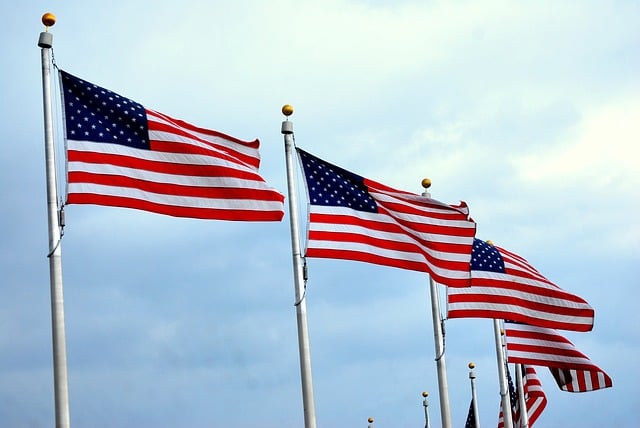Top Dialects of the English Language
With over 350 million native speakers worldwide, English is the third-most commonly spoken language worldwide. But that’s nothing compared to the number of people who speak English as a second or third language, which is estimated to be somewhere around 700 million — double the number of native speakers!
Most of these 700 million English-language learners study one of two dialects: Received Pronunciation of England, or American English of the United States. However, there’s a lot more to English than just Britain and the USA: English has dozens of other major dialects all across the globe. Here’s a run-down of some of the most common ones.
American English (Americas)
 Image via Pixabay
Image via Pixabay
With a population of over 300 million, the United States is home to more native English speakers than any other country in the world. The pronunciation of American English can be hard for learners as it makes great use of the letter “R”, which is notoriously challenging for speakers of many other languages.
Those planning on living in the United States or working with American colleagues should be wary of the odd measurements that American English speakers use: weight is not in kilograms, but in pounds; temperature is not in Celsius, but in Fahrenheit; and distance is measured not in meters or kilometers, but in inches, feet, and miles.
British English (Europe)
British English is where it all began: the English language as we know it originated in modern-day England. Interestingly though, Received Pronunciation — a prestige dialect that is widely taught to learners across the world — is spoken natively by only about 3% of the British population.
British English is more lenient with the letter “R” than American English; it’s only pronounced if it’s followed by a vowel (e.g., in the word “mural”) or if it’s at the beginning of a word (e.g., “royal”). It also differentiates itself from American English in terms of spelling. Words that end in “or” in American English have an extra “U” in British English (e.g., colour, flavour). And words that end in “ize” are spelled with an “S” (e.g., realise, organise).
Canadian English (Americas)
Canada is unique in that it combines elements of both American and British English. For example, they spell “flavour” and “colour” like the Brits do, but in terms of words like “realize” and “organize”, they side with the Americans.
The best-known feature of Canada’s speech is their uniquely Canadian use of the interjection “Eh!”, which is a versatile word that can be used to indicate agreement, surprise, and a host of other sentiments.
Australian English (Oceania)
G’day, mate! The Australian dialect, spoken by over 20 million Aussies, is instantly recognizable, in part thanks to internationally famous Australian celebrities such as the late Steve Erwin, who popularized it across the globe.
How good is your English? Find out by taking our free online English level test!
Perhaps the most curious feature of Australian English is their tendency to shorten words, such as “brekkie” for breakfast and “barbie” for barbecue. In fact, the word “selfie”, which was added to the Oxford English Dictionary in 2014, originated in Australia.
New Zealand English (Oceania)
The New Zealand accent may sound exactly like Australian English to an untrained ear, but there are a few key differences, one which has to do with the pronunciation of the letter “I” in words like “bit” and “sit”. Whereas these words in Australian English sound more like “beat” and “seat”, in New Zealand, they’re closer to “but” and “sut”. This small difference can help you tell apart English speakers from Australia and New Zealand.
South African English (Africa)
 Image via Werner Bayer / flickr
Image via Werner Bayer / flickr
Though it’s not the top language in South Africa, there’s quite a large population of English speakers in the country, especially in urban areas like Cape Town. South Africans have applied their own meaning to certain English phrases, especially those involving time. Confusingly, “just now” and “now now” do not mean “immediately”, but instead are closer to “in a little while”. If you want to convey a sense of immediacy, use “right now”.
Irish English (Europe)
The dialect of Ireland is known for its old-timey charm, and often appears in pop culture. To sound like the Irish, start by turning your “Ds” into “Js” when they come at the beginning of a word — so “duty” is pronounced like “juty”. And non-native speakers will be glad to know that the Irish often forgo the “TH” sound altogether, instead replacing it with more easily pronounced alternatives like “T” or “D”.
Indian English (Asia)
Another dialect that seldom pronounces the “TH” sound is the English spoken in India. There are a whopping 120 million English speakers in India; however, only a handful of them speak English as a first language. Given that only one of India’s numerous native languages contains the “TH” sound, most English speakers in India do not pronounce it. Like the Irish, the replace it with a “T” or “D”.
Indian English also uses the original Indian counting system for large numbers, employing words like “lakh”, which refers to 100,000. This might seem peculiar to those unfamiliar with the system, though it’s certainly no stranger than the measurements used in American English!
From London to New York to Cape Town to Sydney to Mumbai, you’ll find unique English dialects all over the world. But no matter what dialect you’d like to learn, it’s a good idea to take courses from a native English speaker to push your English skills into high gear. There’s no faster or better way to learn English! Contact us to find out more information about our course and package options.


